News
-
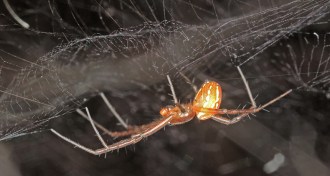 Animals
AnimalsFirst spider superdads discovered
Male spiders first known to give up solitary life for offspring care, often as a single parent.
By Susan Milius -
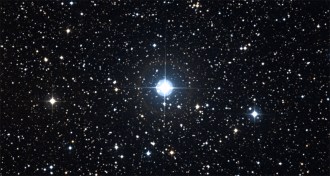 Quantum Physics
Quantum PhysicsCosmic test confirms quantum weirdness
Physicists used starlight to perform a cosmic Bell test.
-
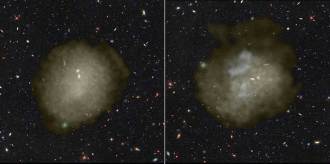 Astronomy
AstronomyStellar vomiting produces dark galaxies, simulations suggest
Dark galaxies might owe their existence to multiple rounds of prolific star birth and death that eject gas and stretch out their homes, new simulations suggest.
-
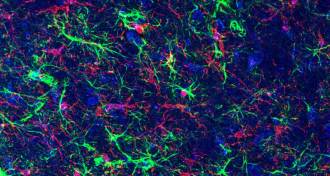 Neuroscience
NeuroscienceGut microbe mix may spark Parkinson’s
Parkinson’s disease symptoms might be driven by gut microbes
-
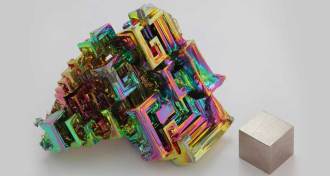 Physics
PhysicsDespite lack of free electrons, bismuth superconducts
Bismuth conducts electricity with no resistance at temperatures near absolute zero, despite lack of mobile electrons.
-
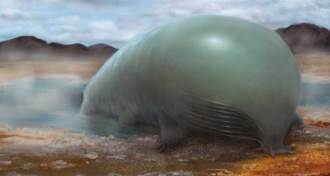 Chemistry
ChemistryEnzyme forges carbon-silicon bonds with a little human help
A few tweaks to an enzyme help it link carbon to silicon — a match not found in nature.
-
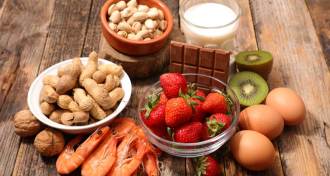 Life
LifePublic, doctors alike confused about food allergies
Gaps in understanding food allergies cause confusion and make it difficult to prevent, diagnose and treat them.
-
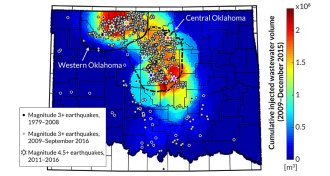 Earth
EarthWastewater cap could dunk Oklahoma quake risk
Regulation limiting the injection of wastewater into underground wells could return Oklahoma’s earthquake risk to historical background levels within a few years.
-
 Anthropology
AnthropologyBuff upper arms let Lucy climb trees
Australopithecus afarensis’ heavily built arms supported tree climbing, scans of Lucy’s fossils suggest.
By Bruce Bower -
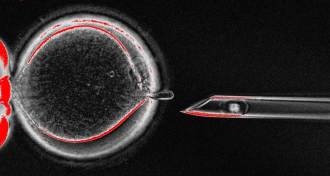 Life
LifeMitochondria variants battle for cell supremacy
Some mitochondria are more competitive than others, which could complicate treatments for mitochondrial diseases.
-
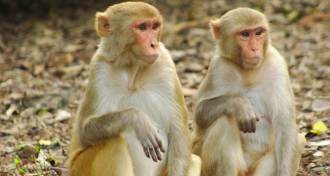 Health & Medicine
Health & MedicineLow social status leads to off-kilter immune system
Low social status tips immune system toward inflammation seen in chronic diseases, a monkey study shows.
-
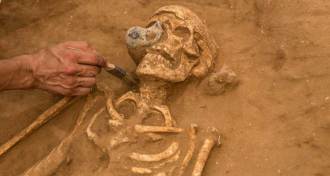 Archaeology
ArchaeologyAncient cemetery provides peek into Philistines’ lives, health
Burial site offers new look at Israelites’ mysterious enemies.
By Bruce Bower